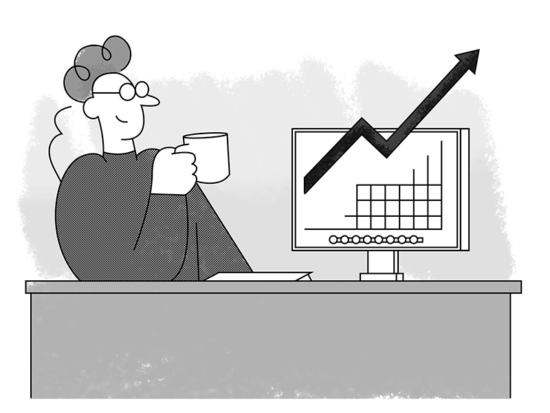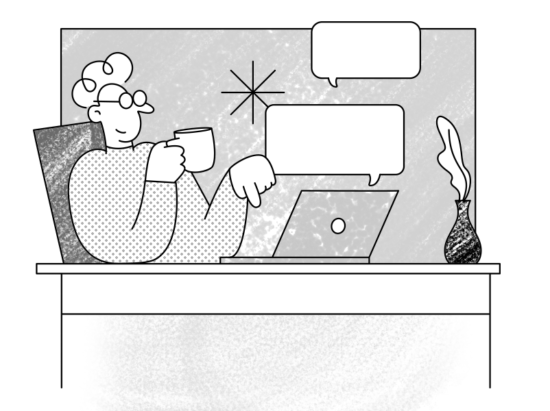WordPress is, apparently, starting to give off page builder vibes, and developers are not pleased with the change.
And who would be?! No one wants to see a CMS transform into a page builder. Especially not Mark Wilkinson and Keith Devon.
If you haven’t heard of these guys, here’s why we are bringing their names up:
Last week, we saw the following tweet from Mark Wilkinson.
When we read it, we were a bit stunned by his statement. Then, in the comments, we saw that the new episode of Wilkinson’s (and Devon’s) podcast WP Café Show is going to be published soon and that the tweet author and Keith Devon are going to discuss the issue of WordPress not being the right tool for building websites.
What was even more concerning about this tweet is that many people in the comments mentioned that they are actively looking for alternatives when it comes to creating websites for clients.
As a team of ride-or-die WordPress’ fans, we were intrigued to hear what the duo has to say about WP.
On June 8, the podcast episode titled Is WordPress still the right tool for building websites? WP Café #20 was published on YouTube, and we listened to it. Here’s our takeaway.
But first, what is WP Café?
In case you haven’t heard about it, WP Café is a podcast show hosted by two experienced UK-based WordPress developers, Mark Wilkinson and Keith Devon. They are the founders of Highrise Digital, a WordPress development agency. In the podcast, the team discusses solutions for freelancers and small WordPress development teams. This dynamic duo is definitely a good combination and easy to listen to: Devon is a bit more feisty, while Wilkinson is the calm one.
Topics of this WP Café episode
In the podcast, Devon and Wilkinson discussed three topics:
1. Visual regression testing
2. Delicious Brains plugins being acquired by the WP Engine
3. The direction WordPress is going
Here’s a brief recapitulation of each topic.
The first topic was visual regression testing. Devon explained the testing, while Wilkinson mentioned the importance of testing, highlighting that such testing is essential for WP blocks, as one page can have a lot of combinations of blocks.
Then, they discussed the Delicious Brains acquisition. In case you haven’t heard the news: Advanced Custom Fields (ACF), WP Migrate, WP Offload SES, WP Offload Media, and Better Search Replace are now part of the WP Engine. Devon demonstrated dissatisfaction with the news, worrying about the future of WP plugins一he openly stated that he would not be pleased if all the plugins became owned either by WP Engine or Awesome Motive. Wilkinson added that if at any point that happens, he believes the large companies would still make great tools and provide a unified experience for developers.
The final topic of the episode was WordPress and the direction it was going. Devon creatively named the topic ‘Existential crisis and WordPress: Part 53’ (yes, it made us chuckle). And WordPress giving developers an existential crisis is precisely what inspired this blog post.
The main WordPress issue: WordPress blocks and their CSS style tags
On the topic of WordPress, the hosts mentioned three issues with using WordPress:
1. WordPress stepping away from utility classes.
2. Container classes that are followed by CSS style tags.
3. Constant markup changes.
As you probably know, utility classes are specific to frontend frameworks and have also been present in WordPress. Using these classes can speed up the development process and improve overall website performance, reducing the amount of CSS code written for a project. Since WP 5.9, when the container classes began to appear and utility classes started to fade, developers have been having difficulties building sites for clients. Why? Because now there is a layout-specific CSS in those CSS style tags.
To remind you: each block has its own style tags一if you don’t set options for a block, wp-container-random number class will appear, and the CSS style tags will follow it. Vividly annoyed by these changes, Wilkinson gave the example of creating a column block and not changing the default settings, which results in block outputting style tags; if there are 20 column blocks on a page, there will also be 20 style tags with the exact same CSS. So, instead of applying one rule to all those column blocks, 20 different rules that are applying the same rules to each block. It’s pretty wild when you explain it and doesn’t make much sense.
Another significant change that shook the WordPress community is the constant changes in the WordPress markup of the blocks. Wilkinson said that changing markup is a massive decision, affecting many sites. He also assumed that the WP developers would add mitigations: the Gutenberg block style sheet that loads on the frontend should have something that fixes the fact that the markup has changed. Devon and Wilkinson definitely saw eye to eye on this matter; as Devon mentioned that if you have custom styles that rely on the markup structure that was there before, you will encounter a huge problem on the website.
The thing that bothered the podcast hosts the most is that it seems WordPress is moving away from the principles of CSS一and Devon mentioned it, too. WordPress code looks like the sort of code that page builders (like Wix and Squarespace) tend to generate. And the consequences of these changes affect the clients, as well. Both Devon and Wilkinson added that their clients are worried and that these fundamental changes are breaking their websites.
Since this was a live episode, one of the podcast followers asked the duo whether they are thinking about moving on from WordPress, when it comes to building websites for clients. They both concluded that it’s probably not going to happen yet. However, Wilkinson added that, for the first time, he is thinking about exploring other options.
What do we think?
We definitely get where Devon and Wilkinson are coming from. It truly looks like WordPress doesn’t respect the basic CSS rules.
However, we must remember that WordPress is not the CMS it once used to be. Now, it comes with blocks (and block patterns)一an option that allows new WordPress users to create websites quickly. And blocks are another thing WordPress borrowed from page builders. Knowing this, it is expected that there will be a few changes in the code.
If you ask Themes Kingdom developers what they think about the CSS issue, they will all say that the style tags don’t make them sweat. When they are building TK WordPress themes, there are a bunch of settings that they go through in the JSON file and have to run over. And when it comes to utility classes, they tend to create their own and share them with the users一a list of utility classes available for a specific Themes Kingdom theme can be found in theme documentation.
The reason why we are so optimistic about WordPress is that the changes that have been mentioned in this post are results of the Full Site Editing features. As you know, FSE features are still very new, and we expect WP developers to fix all the current issues in the near future. We hope that the issue with classes and tags will be resolved in the next year or two.
Are we still pro-WordPress?
Sure! But, we do acknowledge that WordPress can make things difficult sometimes. Still, we believe that this CMS should be the number one choice for anyone looking to build their site. After all, it is the world’s most popular CMS software一it powers almost 40% of all websites on the internet. It’s the most reliable, pretty secure and has a large community, of not just developers but regular users.
What are your thoughts?
How has been using WordPress for you? Have you had any trouble with the sites you managed? Or clients, perhaps? Let us know in the comments.
If you liked this article, please subscribe to our newsletter, to get posts like this one delivered right to your Inbox. You can also find us on Twitter, Facebook, and Instagram.




